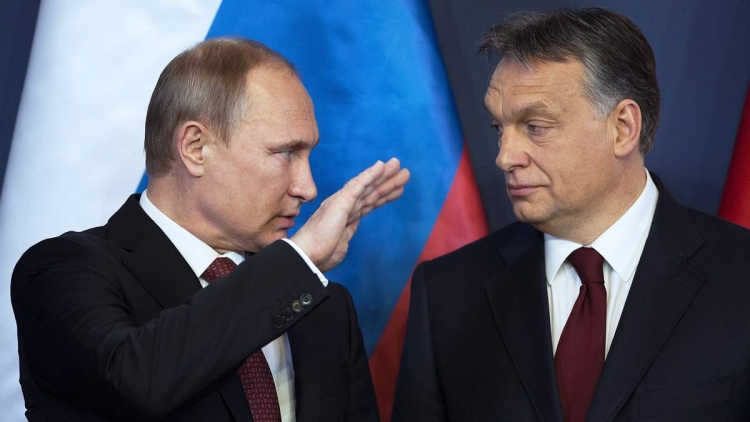
Budapest made a deal with Gazprom: Drift towards Moscow or Orban's election campaign
Hungary has signed a long-term contract with Russia's Gazprom. Now Budapest will receive fuel directly, bypassing Ukraine. What underlies such a decision and what should be Ukraine’s reaction?
Last week, TRUMAN already reported on the conflict between Ukraine and Hungary over Budapest's new gas contract with Gazprom.
It will be recalled that the agreement, providing for an annual supply of 4.5 billion cubic meters of gas from Russia to Hungary, affects the interests of Kyiv. For the first time, Budapest will receive Russian energy directly, bypassing Ukraine.
The signing of the contract was immediately followed by mutual talks with the ambassadors and a series of salty claims from both sides. Ukraine canceled a meeting of the Ukrainian-Hungarian intergovernmental commission on economic cooperation and appealed to the European Commission regarding the compliance of the gas agreement with European energy legislation.
Budapest responded with allegations of national sovereignty violations and promised to block Ukraine's accession to NATO. The long-standing language dispute between the states was also mentioned.
However, despite the violent reaction of the parties to the conflict, some experts were not surprised by the signing of the contract with Gazprom at all. Hungary is 50-70% dependent on Russian gas, they say. Negotiations on a new agreement between Budapest and Moscow have been carried out since last year. After all, the previous contract expired back in 2015. Since then, it has been regularly extended with the necessary amendments and modifications.
Ukrainian politicians believe that nothing should have been changed. To date Budapest has tried to reduce its dependence on Russian gas. As evidenced by the negotiations on energy supplies from Romania, and the signing of an agreement with the US on the delivery of liquefied natural gas.
Making a deal with Gazprom, Hungary certainly realized what the costs would be. It's all about money. Getting fuel will straightly deprive Budapest of profits from the delivery of Ukrainian gas to Croatia and the rest of the Balkans. And transit itself is to become more expensive, because of the longer transportation.
Then why did Hungary agree to sign a new contract with Russia? TRUMAN tried to figure it out.
Parliamentary elections are approaching in Hungary. This time, victory of Fidesz, led by current Prime Minister Viktor Orban, is not 100% guaranteed. The opposition is close-knit and ready to come out in a united front. Under such conditions, a stable supply of natural gas from Russia and, as a result, lower tariffs can provide Orban with electorate’s favour. The cold winter season is near.
In turn, Moscow has repeatedly exploited gas as a weapon against its opponents. Therefore, the Kremlin is ready to compensate Budapest for any losses and sell gas at reduced prices in exchange for political concessions. Especially, if it concerns Ukraine.
So, what should be Kyiv's strategy in such a situation? After all, the "Hungarian" share in Ukrainian gas transit is about 20%. Experts warn against reckless emotional statements and prefer a soft approach.
The right decision was the appeal of the Ukrainian Foreign Ministry to European partners. Such a step moves the bilateral conflict into the plane of common European law and interests.
Experts predict stagnation in relations with Hungary, as its central government today is entirely focused on parliamentary elections. Therefore, Ukraine should focus on the European direction and prevent the so-called EU energy crisis when everyone will be on their own and negotiate with Russia bilaterally. Germany's decision on Nord Stream 2 has already set a negative precedent in this area. It is necessary to convince the Western partners that the preservation of the Ukrainian GTS is in their interests.
One should not forget about alternative energy sources. The Hydrogen Investment and Support Plan presented by Brussels last year attributes a primary role to Ukraine. However, for the production and supply of hydrogen to Europe, Kyiv needs to carry out a radical transformation of its gas transmission system. According to preliminary estimates, it will cost about $ 2-3 billion. That is why the creation of a real electricity market, leveling the excessive influence of monopolies and attracting private investment are much more relevant for Ukraine today than loud statements against opponents.
